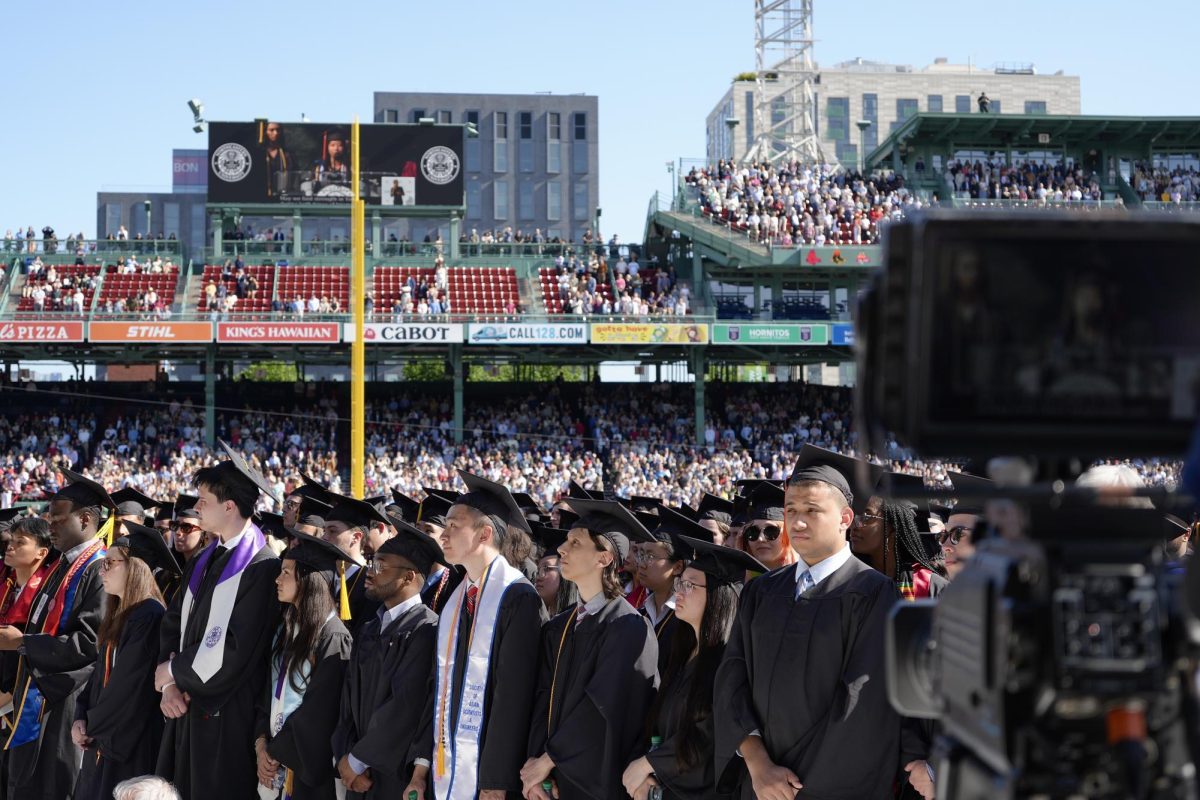If I shell out money for a movie ticket, I have a few expectations of the lead actor: Be more entertaining than my popcorn, and produce real tears during crying scenes. What I don’t rely on, however, is the actor being a good spokesperson for their movie’s delicate subject matter.
Today’s culture expects celebrities to excel at the latter. In addition to their day job, an A-list actor must now speak out about the social and political issues covered by their movie. Falling short of these demands has consequences — just ask Blake Lively, who received an abundance of hate for her “tone-deaf” behavior during the press tour for “It Ends With Us,” a film centered around domestic violence.
While I admit I was put-off by Lively’s handling of the film’s domestic violence themes (she could’ve perhaps avoided promoting her haircare line during these interviews), I think that the level of outrage being directed at the actress raises a larger question: Why are we so reliant on celebrity statements in the first place?
Of course, Lively missed the mark. She’s a millionaire A-lister who — without the guidance of a script or any known first-hand experience — is unequipped to treat such a heavy topic with the knowledge and care it deserves. Her shortcomings only highlight how inappropriate it is to have celebrities guide crucial conversations.
Rather than emphasizing their movie’s message, an actor’s statement often waters it down. Whether a movie grapples with subjects such as inequality or violence, we do its message a disservice by focusing on how a star chooses to interpret it in a 30-second red carpet interview. Instead of prioritizing what the actor says about an issue, why not invest more thought into what the film itself is saying — a message crafted by writers and directors who, by the nature of their roles, engage far more intentionally with the topic at hand?
It’s true that celebrity actors can help these sentiments reach a wider audience, including people who haven’t seen the film or who don’t quite grasp its meaning. I can understand feeling disappointed when celebrities don’t seize such a rare opportunity. The image of a young fan watching a Lively interview, failing to receive what could be a much-needed message on dating violence, is not lost on me.
But that’s exactly why we must uncenter celebrities from these conversations, and in tandem, work toward building a more media-literate culture that knows to seek better sources. If we stop holding movie stars accountable for educating the public, we can shift responsibility back to where it belongs.
Across the U.S., 13 states don’t require schools to teach about healthy relationships and teen dating violence — why not direct efforts there instead?
Lively isn’t the only actor to provoke this debate. In 2021, Hollywood’s leading man Leonardo DiCaprio starred in the satirical comedy “Don’t Look Up,” a powerful commentary on today’s climate crisis. By contributing his acting talents and star-power to the project, DiCaprio helped the film’s environmental warnings reach over 171.4 million viewers on Netflix.
When combined with the $100 million in grants he’s contributed to the climate cause, there’s no doubt that the star has done some serious good for the environment.
But does this mean that DiCaprio is best suited to be the face for climate activism? He is not a member of the populations who will face the most severe effects of climate change. And against the backdrop of his highly-publicized yachting and jetting habits — having famously flown 8,000 miles by private jet to accept a climate award — some could argue that the star’s preaching makes the movement appear hypocritical.
Ultimately, years of lavish accommodations and doting personal assistants are bound to make celebrity actors somewhat out-of-touch — able to beautifully portray issues on screen, but unable to speak about them in a nuanced and relatable way.
This isn’t about wanting to relieve A-listers of undue burden, nor is it about forbidding celebrities from speaking on the issues that matter to them. It’s about us as a culture recognizing the majority of actors for who they are: not policy-makers, nor the individuals most affected by these issues, but performers.
Performers who, outside of the words “action” and “cut,” shouldn’t hold the power to disappoint us in the first place.
“Anyone But You” star Glen Powell seems to get it. He recently told Sharp magazine about his plans to “build trust with the audience that I’m going to work my butt off to make sure they’re entertained.”
Now that is a standard we can hold him to.
Samantha Denecour is a fourth-year English and political science combined major and columnist for The News. She can be reached at denecour.s@northeastern.edu.
The Huntington News is dedicated to serving the Northeastern University community with original, professional reporting and creating an environment in which student journalists can learn from one another. Support an independent, free press at Northeastern University with your donation today.

















